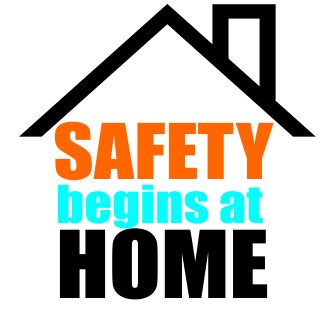Safety at Home
General Safety Tips
Here are some first aid measures we provide for you and how to call for help.
- Have a licensed electrician that checks your home's wiring regularly, especially in older homes.
- Never change a light bulb without first making sure that the current is switched off.
- Do not use a fork or a knife or anything metal to remove toast from a toaster when it is plugged in.
- If you see a sparks or smoke from an electrical appliance, it is telling you that something is wrong. Unplug it (turn off the main switch if necessary) and call an electrician.
- Do not work on an electrical appliance unless you know exactly what you are doing and have made sure it is not plugged in.
- Water conducts electricity. Never use electrical appliances where they could come into contact with water and ensure that they are not positioned where children may be able to pull them into the bath, shower or basin.
.
Electrical Panels, Fuses, and Outlets
- Do not stick fingers into sockets.
- If a fuse blows, turn off all appliances and lights that are on the circuit before changing the fuse.
- Use a flashlight. Don't try to replace a fuse in the dark.
- Replace a fuse with another that has an identical rating.
- Loose fuses can overheat. If you have plug-type fuses, you should periodically check to make sure they're snug.
- Never replace a fuse with a coin or other metal object.
- Use ground fault circuit interrupters on all outlets located outdoors.
- Cover sockets with safety cap.
Cords, Extension Cords, and Plugs
- Do not overload plugs – use an approved adaptor
- Pull the plug, not the cord, when disconnecting an electrical device.
- Never remove a plug when your hands are wet, or if you’re touching a metal object.
- Use only three-pronged extension cords outdoors.
- Keep cords well away from sources of heat (ex. hot stoves and other hot surfaces) and water
- Cords and plugs that show signs of wear or damage need to be replaced. Stop using them immediately.
- Do not run electric cords under a carpets and rugs, through a doorway, or anywhere that it could be stepped on.
- Always use extension cords that are properly rated for the amount of electricity you'll be using.
- Extension cords are intended for temporary use. If you need a permanent solution, call an electrician.
- Do not connect electrical appliances to light sockets.
Electrical Devices, Appliances, and Power Tools
- Switch off appliances when not in use and before removing the plug from the power point. Some appliances such as televisions may still have electricity running through them even though they may appear to be switched off.
- Unplug your electrical gadgets when they're not in use.
- Keep your electrical devices away from sources of water.
- Never use a faulty appliance. If an appliance fails to operate, blows a fuse, overheats, sparks or gives you an electric shock, disconnect the appliance and have it checked by a licensed electrical contractor.
- Service appliances according to the manufacturer's instructions.
- Don't leave appliances such as heaters, electric blankets, stoves and ovens on when you are not at home.
- Never touch appliances or switches with wet hands.
- If an appliance falls into water dispose of it immediately (remove the cord so it can't be used again).
- Never dislodge toast from a toaster with a metal knife or other metal objects.
Electricity and water
- Do not use electrical appliances in the bathroom.
- Never touch electrical appliances with wet hands or bare feet.
- Never fill a kettle when it is plugged in.
- Be extremely careful when using appliances connected to power points near wet areas including sinks, baths and swimming pools
- If an electrical appliance has been immersed in water it must be discarded immediately
- Switch off and unplug after use all portable electrical appliances, such as hairdryers, shavers, etc
- Never use water to put out an electrical fire. Use a dry chemical extinguisher.
Power Lines
- Ladders, boat masts and poles should be kept well clear of overhead power lines
- Look up and keep clear! Power lines can sag in extreme heat and sway in strong winds
- Take care. Power lines are difficult to see at dawn and dusk
- Plant low growing vegetation near power lines.





